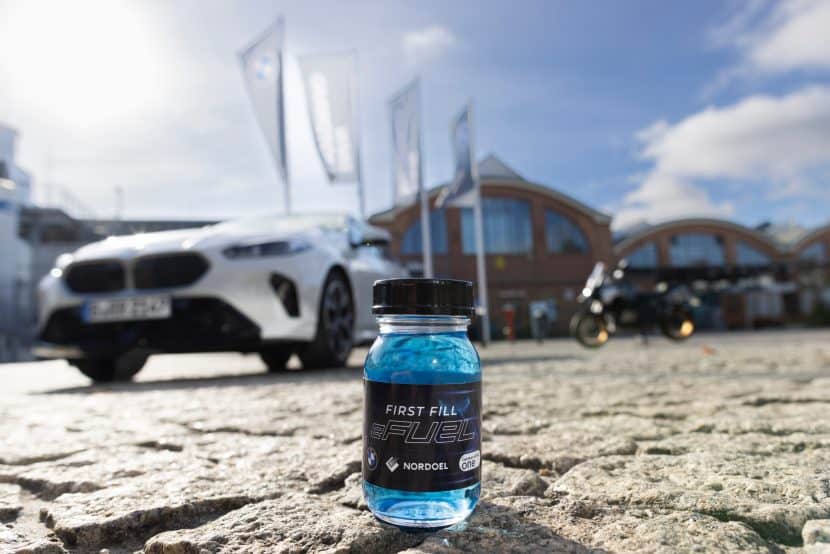Some automakers claim battery EVs are the only feasible way to curb emissions. Well, BMW begs to differ. Munich argues there are multiple paths to decarbonization. In addition to investing in hydrogen, it believes cleaner fuels remain a viable solution to reduce CO₂ emissions.
Since the start of this year, diesel cars assembled in Germany have already been rolling off the line with HVO100 in their tanks. This renewable diesel is made from hydrotreated vegetable oil derived from biological residues and waste materials such as used cooking oil and animal fats. Compared to regular diesel, it cuts emissions by up to 90%. What about gasoline engines? A similar solution is on the horizon.
Beginning in 2028, BMW’s gasoline-powered cars built in Germany will leave the factory filled with eFuel. This synthetic gasoline, compatible with engines designed for E10 (a 10% ethanol blend), is expected to have up to a 90% lower carbon footprint than conventional fossil fuel. It will work not only in new cars but also in existing ones without modification, provided the engine supports E10.
To make this possible, the BMW Group, Lother GmbH, and German eFuel One GmbH have signed a letter of intent. The synthetic fuel will be produced from renewable methanol made using green hydrogen and captured CO₂. Tests conducted by Lother indicate the new eFuel improves engine durability and helps engines run cleaner.
German eFuel One is currently building a factory in Steyerberg, Lower Saxony, to begin production in 2028. At full capacity, the facility is expected to produce 75 million liters annually. Whether production in this industry can be scaled up enough to make a real impact, however, remains to be seen.
Perhaps the European Union will reconsider its 2035 ban on new cars with tailpipe emissions, allowing vehicles that run on renewable fuels and generate only a fraction of the emissions of traditional gasoline or diesel. The ban is set to be reviewed before the end of the year, and there’s growing pressure for more flexible legislation.
Photos: BMW Deutschland

